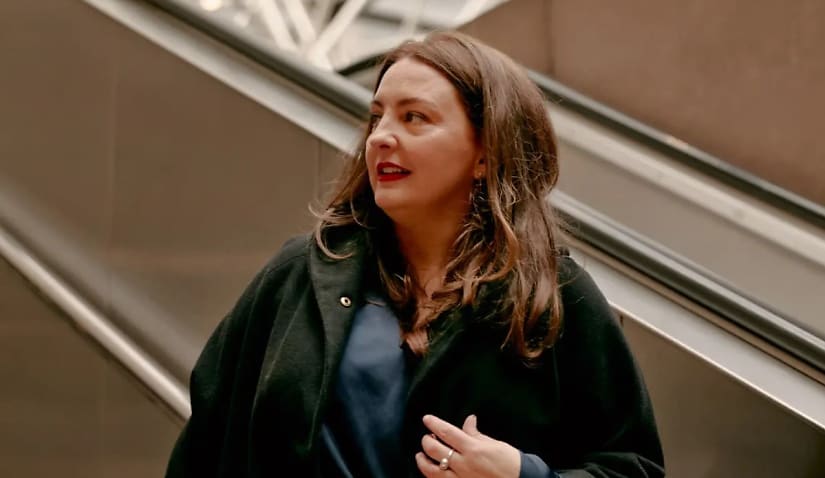When it comes to managing a team in an agile business, this GC says that open communication is of the utmost importance as new challenges – both personal and professional – arise.

Luana Melis is the general counsel and company secretary at Time & Place. Speaking recently on The Corporate Counsel Show, she discussed managing high-performing in-house teams in a small, agile private business and the challenges of doing so.
“One of the things as a lawyer, when you’re in law school and when you come out, you sort of don’t realise how much project manager you’ll be when you go in-house,” she said.
“It really is about project managing an outcome for people, and it’s hard, particularly when you have more junior lawyers and they come on board and they’re like, ‘well, it’s not necessarily my role to do that particular task’. However, sometimes, when you’re in a smaller business, it’s really all hands on deck.”
Therefore, to achieve goals within the organisation, Ms Melis and her team have taken a number of practical steps.
“For a small team, the legal set-up we have here is quite sophisticated, and it’s only since I’ve been engaging with a number of other GCs and in-house legal counsel that I’ve realised that our processes are actually quite up there in terms of what we’re doing, which is great to see. And sometimes, I look back and I think, oh, maybe there are too many processes for a small business. So, there’s been times where processes haven’t worked as we wanted to,” she said.
“For example, we rolled out a process in relation to some standard form document contracts that we use on a regular basis, and while they’re standard form, they’re also complex. So, we learned in the hard way that we needed to be better at the education for the team, the broader business commercial team, on how we rolled those out.
“But some of those processes, in terms of putting those in place, has meant that the volume of work has gone down for us, and the team have been able to self-help. So, for us, it’s been about the framework of what we do, what we don’t do, what the team can do themselves, and what they can instruct out, and also, to be honest, what we don’t do, like absolutely what we don’t look at.”
Being able to “self-help” also helps with “constant firefighting” (which a number of other legal teams are grappling with) and sustainable workloads – something Ms Melis said keeps her up at night.
“The other thing that keeps me up is the wellbeing of the team and the workload. And with workload, it’s about seeking buy-in from the business at a higher level as to where they want you to be putting your time. Because if you just keep running at a million miles an hour – for us, the work has been considerably high. So, we’re getting a lot more critical work, a lot more fires to put out, and we’re working more on strategy, which has been really great, but at the same time, you can’t do it all. And as lawyers, we tend to.
“So, it’s about getting that priority framework and having the support from the business directors. So when you have more junior people in the business coming to you, asking you questions that you are not necessarily within your remit, you have the support from above and everyone knows exactly what you are doing. But I think the in-house team takes on an awful lot, including the company secretary role, privacy, we’re rolling out an ESG framework, so we’re involved in a lot of things, and it’s a very difficult balance,” she said.
“Everyone has a different view of what legal should and shouldn’t be doing, and not everyone’s going to be happy with the outcome of where that sits. So, you may not necessarily have agreement, and you don’t necessarily have to have buy-in from everyone, but the communication does need to occur and the feedback needs to be continuous, and we check in all the time, particularly after large projects.”
In addition, having open and transparent conversations with your legal team is equally important, Ms Melis concluded.
“I’ve probably worked way too hard and at one point had a diagnosis of chronic stress and was really honest with the team about that because we did get to that point where the workload was too hard, and I had to reflect back on that. So, I think sharing those personal matters with the team is really important,” she said.
“There’ll be weeks where things are not great. We all know [this] personally. We have weeks where things happen in our life, and you bring yourself to work, and it’s about supporting people through that rather than expecting them to maintain this consistent, high-performing level all the time.”
The transcript of this podcast episode was slightly edited for publishing purposes. To listen to the full conversation with Luana Melis, click below:

Lauren is the commercial content writer within Momentum Media’s professional services suite, including Lawyers Weekly, Accountants Daily and HR Leader, focusing primarily on commercial and client content, features and ebooks. Prior to joining Lawyers Weekly, she worked as a trade journalist for media and travel industry publications. Born in England, Lauren enjoys trying new bars and restaurants, attending music festivals and travelling.